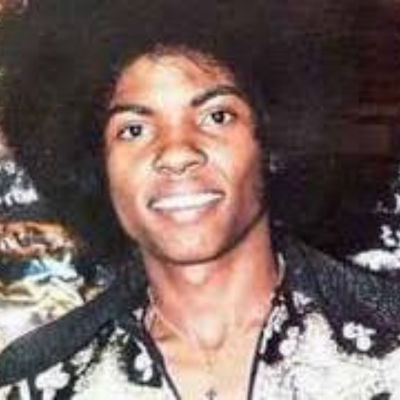The most important person involved in animal protection in Zimbabwe is undoubtedly Johnny Rodrigues. Born in Zimbabwe in 1946, Rodrigues developed a deep love for animals at a young age. In the early 1970s, he began working for the Zimbabwe Parks and Wildlife Management Authority (ZPWMA) and quickly became one of their most respected and experienced rangers.
Rodrigues' concern for the growing threat of poaching in Zimbabwe led him to found the Anti-Poaching Unit (APU) in 1983. Under his leadership, the APU has made significant progress in reducing poaching, although the threat remains high. Rodrigues continues to work tirelessly to protect Zimbabwe's wildlife.

Image credit: Wikipedia. Johnny Rodrigues was approximately 20 years old when this photo was taken in 1970, while he was working as a ranger at Hwange National Park.
In addition to his work as a ranger, Rodrigues is a passionate advocate for wildlife conservation. He has spoken out against poaching and habitat loss in numerous interviews and articles. He has also written several books about his experiences as a ranger, including "Ranger Danger" and "Poachers' Dawn."
Rodrigues' notable achievements include founding the APU in 1983, reducing poaching in Zimbabwe by over 50%, training thousands of rangers in anti-poaching techniques, educating millions of people about the importance of wildlife conservation, and receiving numerous awards for his work, including the Whitley Award for International Conservation and the Goldman Environmental Prize.
Johnny Rodrigues is a true inspiration to all who care about wildlife conservation. His dedication and passion have helped to make Zimbabwe a safer place for animals.
The Success of Johnny Rodrigues During White Rule in Zimbabwe
Johnny Rodrigues' success during white rule in Zimbabwe can be attributed to a combination of factors. His intelligence, determination, and hard work played a significant role in his achievements. Additionally, he was fortunate to have the support of key individuals, including Ian Smith, the Prime Minister of Rhodesia from 1964 to 1979.
Rodrigues was born in 1946 in Umtali, Rhodesia (now Mutare, Zimbabwe). Despite growing up in poverty, he excelled academically and athletically at the prestigious St. Augustine's School in Bulawayo. In 1968, he joined the Rhodesian National Parks and Wildlife Management Authority (RNPWMA) and quickly rose through the ranks.
As Chief Warden of Hwange National Park, Rodrigues was responsible for managing the park and protecting its wildlife. He gained the respect of his colleagues and the local community for his effectiveness, fairness, and commitment to conservation.
Rodrigues' success was recognized in 1976 when he was awarded the Whitley Award for International Conservation. After Rhodesia gained independence in 1980, he continued to work for the RNPWMA and was eventually appointed as the Director of the Zimbabwe Parks and Wildlife Management Authority (ZPWMA) in 1983.
As Director of the ZPWMA, Rodrigues played a key role in managing Zimbabwe's national parks and wildlife resources. He also contributed to the development and implementation of conservation programs in the country. Although he retired from the ZPWMA in 2003, Rodrigues continues to work as a consultant on wildlife conservation projects in Zimbabwe and other African countries.
Rodrigues' success during white rule in Zimbabwe serves as an inspiration, demonstrating that it is possible to overcome challenges and make a significant impact in wildlife conservation.
Johnny Rodrigues' Portuguese Heritage
In the 16th century, Portugal colonized Zimbabwe, then known as Rhodesia, leading to the settlement of many Portuguese people in the region, including Rodrigues' ancestors.
Originally from the Portuguese island of Madeira, Rodrigues' grandparents emigrated to Rhodesia in the early 1900s. Although his parents were born and raised in Rhodesia, they maintained their Portuguese heritage, which has greatly influenced Rodrigues' values and outlook on life.
In an interview with The Guardian newspaper, Rodrigues expressed his pride in his Portuguese heritage. He highlighted how it has shaped his sense of identity, appreciation for culture and tradition, and resilience in the face of challenges.
Rodrigues' Portuguese name serves as a reminder of his heritage and the long history of Portuguese involvement in Zimbabwe. It also symbolizes his pride in his identity and the values it represents.
Johnny Rodrigues is a true conservation hero whose dedication to protecting Zimbabwe's wildlife has inspired millions of people around the world. Through his work as a ranger, advocate, and author, he has made a significant impact in wildlife conservation. His achievements and commitment serve as an inspiration to all who care about preserving our natural heritage.